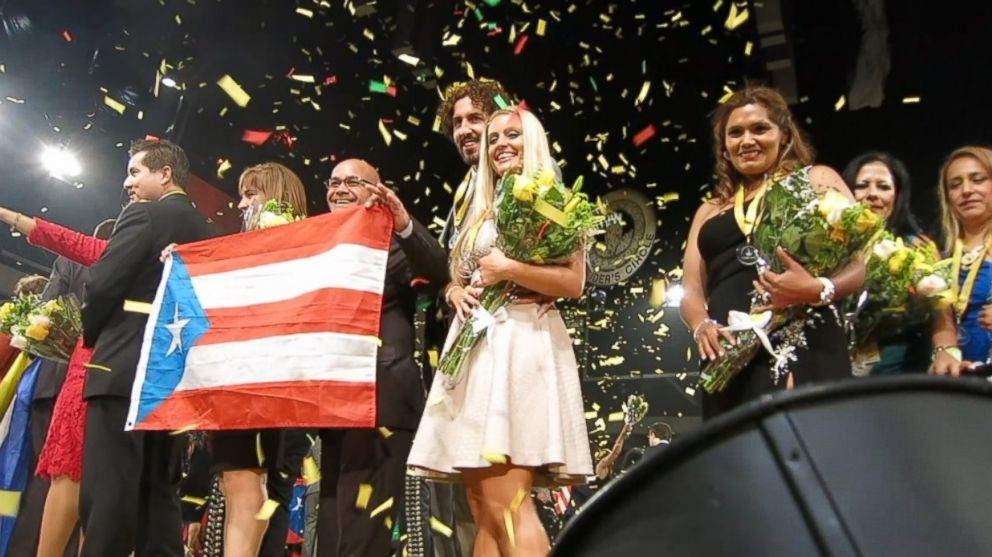Latino Group Demands Herbalife Probe
Multi-Level Marketing Giant Disputes Claim it Targets Hispanics

Feb. 13, 2014— -- One of the nation's largest Hispanic civil rights groups is lobbying members of congress for help in persuading federal regulators to investigate the California-based diet shake company, Herbalife, which has recruited hundreds of thousands of Latino-Americans as distributors to sell its products.
"It's the worst player – bar none – operating in Latino communities across the country," said Brent Wilkes, national executive director of the League of United Latin American Citizens (LULAC).
In launching this latest broadside against Herbalife in an interview with ABC News, Wilkes has continued to raise his profile as one of the most vocal critics of the company. In just the past three weeks, he has carried his message to Capitol Hill, to the Chairman of the Federal Trade Commission, and to the California Attorney General. He has argued that the company has tailored its message to Latinos, promising they "can strike it rich and lead a life of luxury" by selling Herbalife products, but rarely delivering.
"They really tout this American dream … I mean, I've seen their presentations where they say, 'All you have to do is pick. Where do you want to be? How much money do you want to make? Just pick and that can happen for you, as long as you work hard,'" Wilkes said. "Then, what ends up happening is folks, they bite at that, they invest the money to get it, and then they end up losing that money and never getting the success that was touted for them."
Herbalife President Des Walsh told ABC News that Wilkes's views about the company are "mistaken" and have been based on misinformation.
"We're distressed to hear it, because frankly, we know the good that we do every day," Walsh said. "We know the fact that every single day, our Latino distributors are hard at work in the Latino community, bringing good nutrition and bringing financial empowerment. And so we believe that, frankly, Mr. Wilkes is mistaken in his views. And we look forward to the opportunity to really have him take the time to come to know Herbalife."
Herbalife is a 34-year-old multi-level marketing company that sells diet shakes, nutritional supplements and cosmetics through an army of more than 3 million distributors. Some consumers sign up as members of the company in order to receive a discount on the products, while others are interested in becoming distributors who hope to profit by selling the product to others.
Walsh told ABC News that, contrary to impressions of the company formed during its early years, it is not a get rich quick scheme. He said fewer than 4 percent of people who come to Herbalife are seeking a full-time business opportunity.
Numbers disclosed by the company show roughly one-quarter of 1 percent make $50,000 or more through the people they recruit.
"Many people who come to Herbalife, they come to it just as they do whether it's Avon or Amway or Mary Kay, because it's a low cost of entry," Walsh said. "And once they've once they've earned some additional income, whether it be for seasonal purposes or Christmas or whether it's for a special occasion, then these people will come and go. That's the wonderful thing about the direct selling business. It's a low cost of entry. It's easy in. It's easy out."
One assertion that is not in dispute is that Herbalife sells more than 60 percent of its products to Latinos in the U.S. Wilkes said he believes Latino customers are drawn to Herbalife by the promise to make a handsome living by working from home.
He says he initially began scrutinizing the company's practices when he was approached by a company lobbyist looking for support from Hispanic organizations. He said he was disturbed by what he found when he looked further into the company's practices.
"You know, people talk about fast-food industry companies or some of the big box retailers out there not paying their employees enough," Wilkes said. "But all of them pay far more than Herbalife pays its distributors because most of their distributors it turns out are not even making a living wage."
Walsh disputed those conclusions, saying "in one year alone, in terms of payments that we made to Latino distributors in the U.S., we made payments in excess of $180 million into the Latino community."
"So we believe that we are a major contributor, not just to the health of Latino communities, but in addition to the financial wellbeing of [those] communities," he said.



